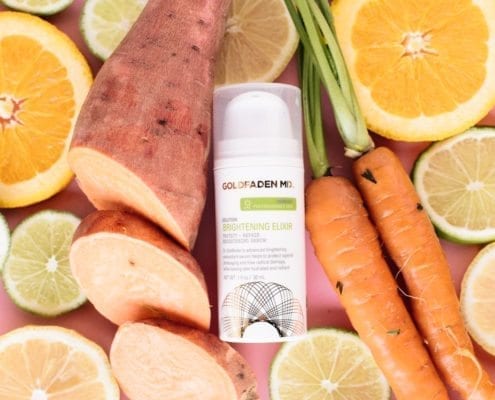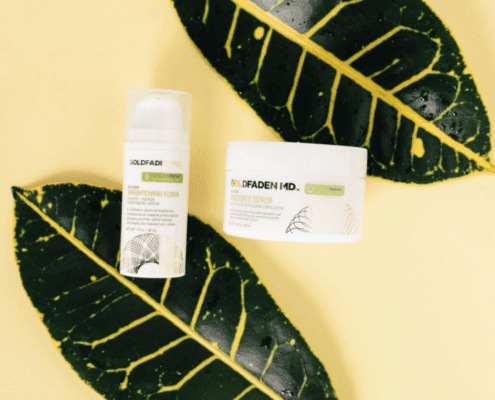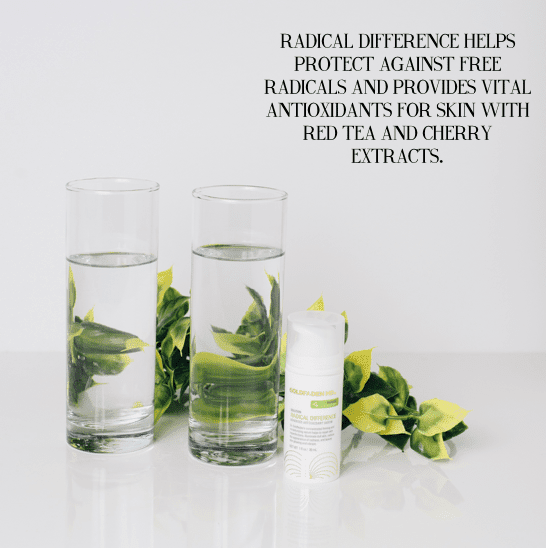Eating a diet high in anti-oxidant rich foods such as leafy greens and berries and foods high in essential fatty acids (salmon, avocado, almonds) shows on your face as well as internally. Eating healthy can also reduce pollution effects on the skin and the body.

What to look out for ?
Steer clear of foods that encourage and cause Glycation. The Glycation process, which is basically, sugars (from food and alcohol) breaking down the collagen fibers in the skin and therefore speeding up the aging process. Glycation equals loss of elasticity and collagen, which equals sagging skin. Foods that feed Glycation and cause inflammation in the body and the skin are carbohydrates, fried foods, sugar, fatty meats and alcohol.
So where to start?
- Say goodbye to sugar, it is NOT your friend. Sugar is addictive and in almost everything! Pay attention to your daily sugar intake. Even that ‘healthy’ green juice you’re drinking has sugar.
- Read labels thoroughly- Salad dressings, cooking marinades, pastas, breads, cocktail mixers and coffee creamers (even the nondairy types) are loaded with sugar.
- Remember you are always one meal away from being healthy. It is not the end of the world if you have a cheat day or even a cheat week (realistic during the holidays). Just remember you are always one meal away from getting back on track.
- Watch the hors d’oeuvres at the holiday festivities
- Watch alcohol intake. This is particularly relevant during the holiday season. Alcohol has dreadful and hazardous effects on the body and skin. Alcohol dehydrates eyes, skin and inside of the body. Alcohol has a bad effect on Vitamin A, B3 and Vitamin C, which are all imperative antioxidants for healthy skin and organ function. Alcohol also affects blood sugar levels and can raise blood pressure.
Signs you’re over drinking:
- Frequent urination during the night
- Dry eyes upon waking in the AM
- Stomach issues + bloating
- Facial puffiness
- Breakouts
- Fuzzy mind
- Overall dehydration
How to reverse Glycation?
- Limit the intake of the ‘bad’ foods
- Exercise daily
- Eat a healthy diet of vegetables and antioxidant rich foods
- Use topical skincare products that encourage collagen reproduction
- Stay out of the Sun/wear SPF
Healthy foods to replenish hydration
- Leafy greens
- All berries
- Lettuce
- Raw spinach
- Tomato sauce
- Bell peppers
- Cucumbers
- Pineapple



